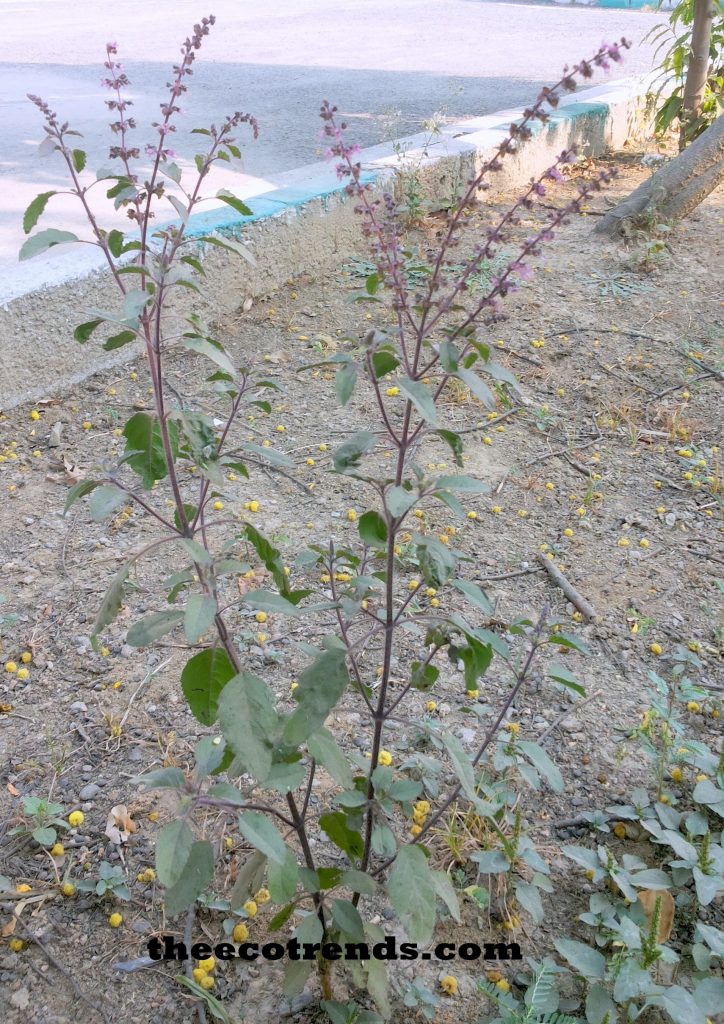Tulsi or the Holi Basil is taxonomically called as Ocimum tenuiflorum. It is an aromatic and perennial plant which belongs to the taxonomic family Lamiaceae. It is native to India though it is cultivated and naturalized to many countries of Southeast Asia.
Tulsi is regarded as a boon to increase the immunity of our bodies. I have been drinking its tea since my childhood when medicines of allopathic origin were not so prevalent. Now, in the current period of the COVID-19 it has become a protective armor to protect us from many diseases. Since, COVID-19 is basically a respiratory disease, extract or tea of tulsi has become very important to correct our respiratory problems at the first stage.
The demand of tulsi has increased during the Corona pandemic. According to many researchers the extract of leaves of tulsi contains vitamin, calcium, zinc, iron, citric acid, malic acid, and tartaric acid. It also contains anti-inflammatory and anti- bacterial properties. It increases immunity and protects body form infections.
It has been proved by researchers that tulsi has anti-oxidents and checks the process of aging. Tulsi is used in Ayurveda, Siddha, Unani, and Homoeopathic systems. Tulsi is reported to contain 2.65g of carbohydrate, 3.15g of protein, 0.64g of fat, 18mg of vitamin C,14mg of vitamin K, 17.7mg of calcium, 64mg of magnesium etc.

Its uses are –
- Daily intake as tea
- Tea of its all parts as Kwath
- Used in salad and chutney
Besides the above its extract is used in providing relief in breathing. It also helps remove tension and depression.
In India tulsi is cultivated for religious, medicinal and traditional purposes. Vaishnawas worship tulsi.
Tulsi plant is erect, multibranched, sub-shrub which grows up to 30 to 60 cm in height. Its stem is hairy; leaves are green or purple in colour. Blades are ovate and margins are slightly toothed. The whole plant is strongly scented. Flowers are found in whorls on elongated raceme inflorescence.
According to different researches it has been confirmed that this plant originated in North-central India. Now, it has been naturalized in a cosmopolitan distribution. Dried leaves of tulsi are mixed with stored grains to repel insects.
For Hindus, tulsi is a sacred plant. It is worshiped as avatar of Laxmi. Traditionally this plant is planted in the central court yard of Hindu houses. This plant is usually worshiped in the Kartik month. A ceremonial festival named tulsi vivah is arranged between Prabodhini Ekadashi and Kartik Poornima.
Scientists report that tulsi contains antioxidants like eugenol which is helpful in protecting heart and fighting away the effects of harmful free radicals. Besides, it contains vitamin. It is also reported that regular intake of its extract treats kidney stones, relieving headaches, and fever and correcting oral health.
tulsi, immunomodulator, laxmi, sacred plant




